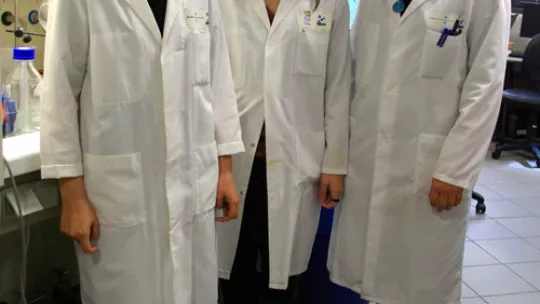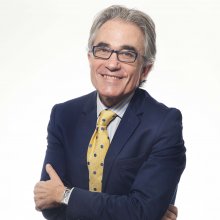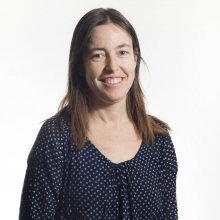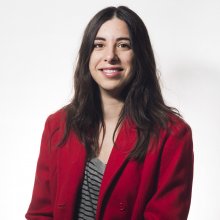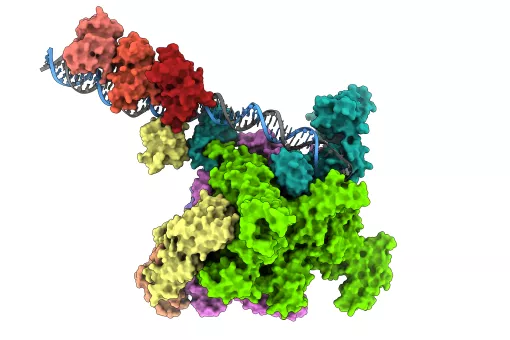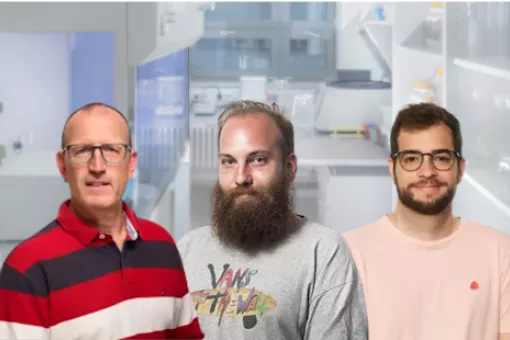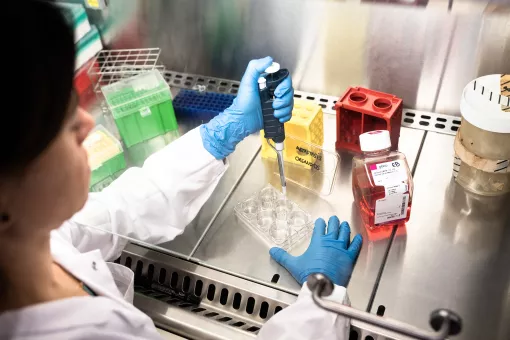Images
A new technique from IRB Barcelona combines chemistry and biology to produce an exact copy of the natural molecule Thiocoraline.
Thiocoraline is a potent anti-cancer agent that is chemically very complex, isolated from a sea sponge in 1997 by the company PharmaMar.
It has taken eleven years of work, but Fernando Albericio, chemist at the Institute for Research in Biomedicine (IRB Barcelona), has finally managed to imitate nature. He and his group have synthesized Thiocoraline, a natural molecule with, as the researchers point out, “an extremely complex chemistry.” Scientists in Dr. Albericio’s Combinatorial Chemistry group have developed a new technique that uses chemistry and biology methods to obtain a molecule homologus to the natural form, with the same structure and same anti-cancer properties.
“Over the years we have been developing new techniques and methods, and have managed to create versions of the molecule with the same chemical activity as the natural compound, but had never quite managed to exactly replicate it,” explains Judit Tulla, research associate in Dr. Albericio’s lab and first author of the study that appears as a “Very Important Paper (VIP)” in the latest issue of the chemistry journal Angewandte Chemie. “As chemists, we tend to limit ourselves to chemistry methods to synthesize molecules, but the sister versions of Thiocoraline we made would keep breaking,” she continues. “Thanks to a recent innovation in the lab, we were able to add an enzyme-based step in the final process, which turned out to be key to achieving the natural molecule.”
Fernando Albericio adds that “the paper was singled out as a VIP because in chemistry it is quite rare to use approaches from biology to synthesize natural products. Our work can serve as an example for other researchers who want to synthesize molecules with similar characteristics in order to produce drugs.”
The researchers also point out that they synthesized the molecule in solid state, that is to say that the reactions took place in resin and not in solution, which requires a higher degree of purification. “Solid state synthesis allows us to achieve the molecule in nine steps, and two purification rounds, which takes about two weeks. This is extremely quick, and saves us time and money,” concludes Tulla.
PharmaMar extracted Thiocoraline from a marine actinobacteria, which in turn was isolated from a sea sponge collected during an expedition to the coast of Mozambique 15 years ago. Thiocoraline proved to have strong anti-cancer properties in in vitro cell lines of colon, lung, breast and pancreatic cancer. Its mechanims of action is known: it inserts itself in the cells’ DNA like a clamp and inhibits cell replication.
The IRB Barcelona scientists explain that their synthesis method “will allow them to launch a programme of Thiocoraline homologues with a view to developing a drug.”
These research results are part of a scientific collaboration, which has lasted for more than two decades, between the lab of Dr. Albericio and PharmaMar, and was consolidated as a strategic agreement between the Spanish pharmaceutical company and IRB Barcelona in 2011.
Reference article:
Enzyme-Labile Protecting Groups for the Synthesis of Natural Products Solid-Phase Synthesis of Thiocoraline
Judit Tulla-Puche, Miriam Góngora-Benítez, Núria Bayó-Puxan, André M. Francesch, Carmen Cuevas and Fernando Albericio
Angew.Chem.Int.Ed. (2013), 52, 1-5 doi: 10.1002/anie.201301708
About IRB Barcelona
The Institute for Research in Biomedicine (IRB Barcelona) pursues a society free of disease. To this end, it conducts multidisciplinary research of excellence to cure cancer and other diseases linked to ageing. It establishes technology transfer agreements with the pharmaceutical industry and major hospitals to bring research results closer to society, and organises a range of science outreach activities to engage the public in an open dialogue. IRB Barcelona is an international centre that hosts 400 researchers and more than 30 nationalities. Recognised as a Severo Ochoa Centre of Excellence since 2011, IRB Barcelona is a CERCA centre and member of the Barcelona Institute of Science and Technology (BIST).

